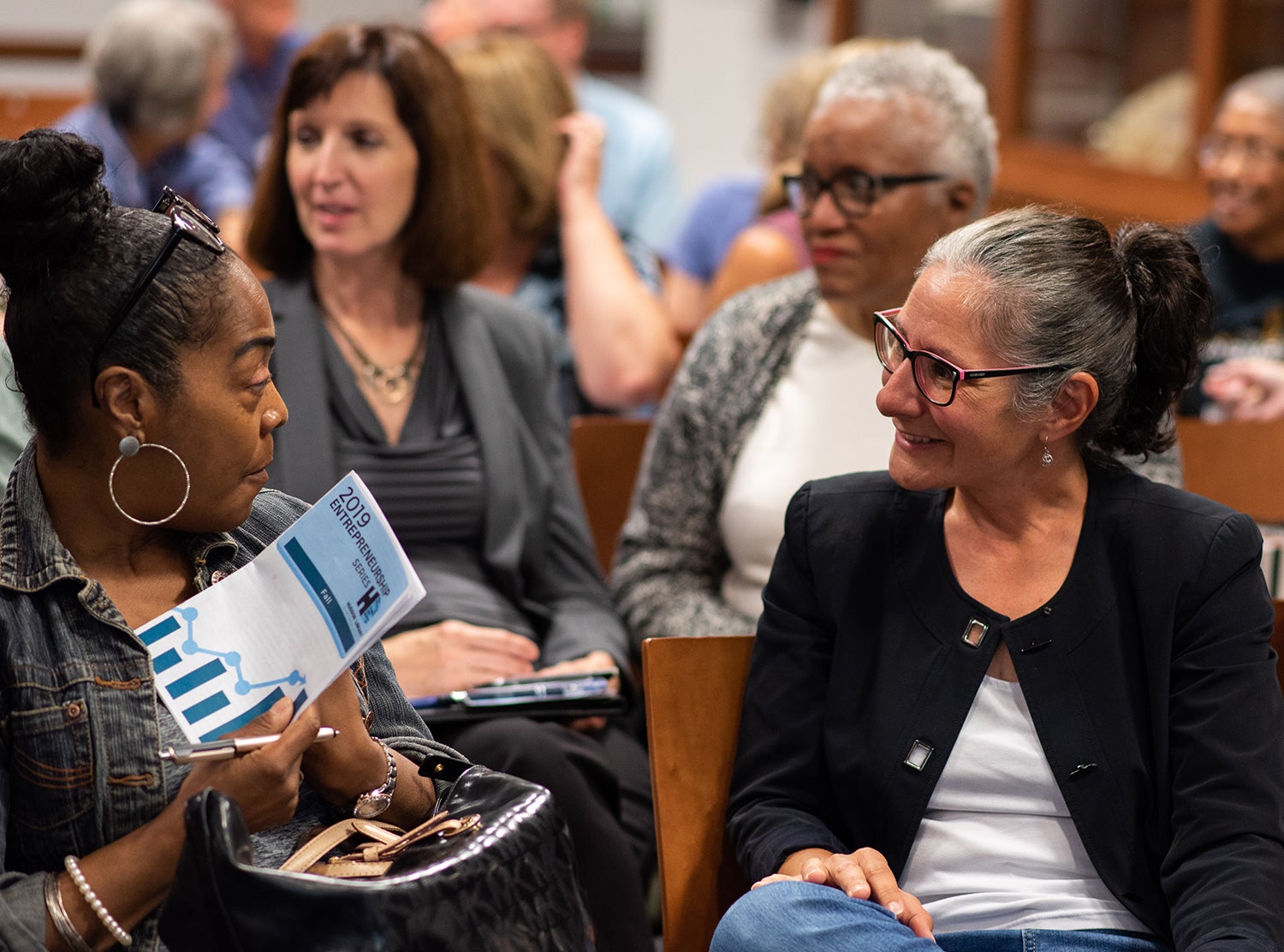Our team at Next for Me has spent the last two years interviewing and surveying Americans over 50, gaining insight into their thoughts and ambitions around work and finance. We found their expectations about career and retirement are vastly different than prior generations, and few of them have plans that fit the “traditional” definition of retirement.
Our New Normal
Our generation is living longer (the average life expectancy for men is 76, for women it’s 81), but half of Baby Boomers have less than $50K saved for retirement.
Not-so-uncommon events like a “grey divorce” or the death of a spouse can further complicate things financially for those who need a reliable income but find themselves with limited career options.
So GenX and Boomers are working longer for financial reasons, because those retirement savings need to stretch longer than they ever have. But they also want to leave a legacy. They don’t fit the stereotype of 65-year-old retiree ambling around a golf course or playing shuffleboard on a cruise ship. They’re looking for fulfilling and meaningful work in their next chapter. “My father retired when he was younger than I am now,” says HR pro Jo Weech. “Not only do I wish to never retire, I also want to continue to disrupt work as we know it, to help make it better and better for generations to come. I am not alone in this quest.”
Ageism in the Workplace and in HR
At the same time, there is ageism in the workplace and in the job market that prevents them from finding new work opportunities. Said one of our interviewees, frustrated after years of being passed over for projects at work, “I am not in the role I want to be in… I’m navigating a culture that is 10-20 years younger than me.”
For those who are looking for a new job, the odds seem even more stacked against them. HR discrimination against older workers persists, with job postings requesting “digital natives,” someone with “high energy,” or “new grads only” shutting out people over a certain age, and digital ad campaigns targeting only to younger applicants. “I’m tired of people telling me that I’m overqualified,” says singer and entrepreneur Kitty Boudoin, “which is another form of ageism and sexism because I’m a woman that’s over the age of 40 and I demand respect and proper pay for works given.”
Lori Bitter, President and Senior Strategist of The Business of Aging says, “I think the people who are occupying the chairs in HR are young. I think a lot of people in the agencies who are placing people in jobs are young and I think there is a lot of misunderstanding and a lot of myths around older workers.” She mentions the assumption that healthcare costs for older workers are automatically higher than for those in their child-bearing years, which is simply not true. “The young people’s understanding of what goes into the cost of a worker is just not there,” she says.
Then there is the issue of algorithmic processes that automatically screen out job candidates with work experience before a certain date, or with a graduation date indicating they are above a certain age. It’s more and more common for job seekers of a certain age to leave their graduation dates off their resumes entirely. It’s no wonder the year graduated field is optional on your LinkedIn profile — some members are afraid to share it.
We’ve Changed the Status Quo Before
One of the driving factors behind the creation of Next for Me was our roots in activism and social justice. We come from a generation that spoke out against injustices against women, the LGBTQ community, and people of color. “There are so many of us baby boomers and we’re living so much longer,” said one of our meetup attendees. “Our expectations about quality of life as an older person have completely changed from what it was a generation ago. There are little pieces of a movement happening.”
Businesses are emerging that support the notion that we have more to contribute and that we can be financially creative in that pursuit. Like Retirepreneur, a collaborative community that helps older workers segue to a satisfying encore chapter that’s designed and lived on their own terms, and Silvernest, which matches homeowners with compatible housemates for long-term home sharing, allowing them to generate extra income and remain in their homes longer. We’re seeing more and more of our community make their own opportunities with freelance work and entrepreneurship.
Our generation will not be put out to pasture without a fight. We’re on a mission to conquer “The last ‘-ism’, Age”, and we’re just getting started with what’s next.
Carole McManus, Editor-in-Chief
Next For Me

Carole McManus
Carole is the Co-founder and Editor in Chief of Next for Me, a new resource that connects and inspires our generation to evolve post-50 life through new work, a new purpose, or a new social contribution. She is a marketing and social media strategist with a history of building some of the most successful online communities on the Web, including Yahoo Groups, BabyCenter, and CatCon. She lives in San Francisco with her children.
This article is intended for general informational and educational purposes only, and should not be construed as financial or tax advice. For more information about whether a reverse mortgage may be right for you, you should consult an independent financial advisor. For tax advice, please consult a tax professional.















I WANT TO KEEP UP TO DATE ON RETIREMENT TRENDS
Follow Us.